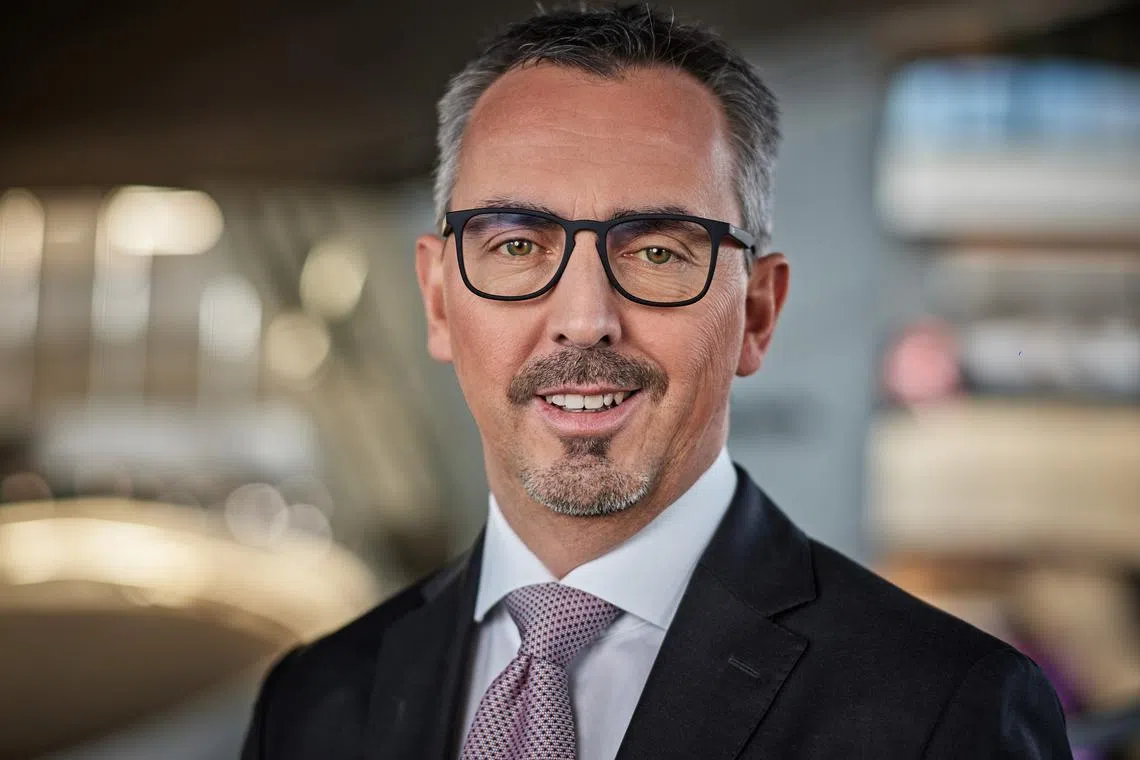Going green will not cost more, says BMW
Sign up now: Get ST's newsletters delivered to your inbox

Mr Joachim Post says German carmaker BMW will raise recycled content in new cars to 50 per cent by the end of the decade.
PHOTO: BMW
Follow topic:
PALM SPRINGS, California – Attempts to recycle materials for cars or shift towards greener production will not lead to higher cost, says a top BMW executive.
Mr Joachim Post, a member of the board of management of BMW’s purchasing and supplier network, said at the launch of the new 7-series limousine here earlier this week that the group’s guiding principle is that going for a circular economy must not lead to higher cost.
“Sustainability must not be more expensive. Green energy must not be more expensive,” Mr Post, 51, said. He added that BMW, which is using some 30 per cent of recycled materials in its cars, plans to raise the percentage to 50 per cent by the end of the decade.
For batteries of BMW electric vehicles (EVs), 50 per cent of recycled nickel is already being used, while the percentage of lithium is “still low”, but will increase. “The energy expended in recycling a material is lower than in mining for the raw material,” he said.
Asked if there are enough raw materials such as lithium if all the world’s vehicles were to be electric, Mr Post said: “There is enough lithium in the earth. The question is how long will it take for new mines to be built. Building a new mine takes time.”
If new mines are not built fast enough, there will be a supply issue. It explains why BMW is already investing in a number of mining projects.
On the global supply chain crisis gripping the automotive industry, Mr Post said it will last “at least till the end of 2023”. He said the issue is threefold – the global semiconductor shortage the war in Ukraine.
To reduce the impact of this crunch, BMW is shifting towards a “local for local” supply strategy, where it seeks to source for materials closer to its manufacturing facilities.
As for Ukraine, “we are still there”.
“We’re committed to the people we work with there,” he noted. “We’re doubling the number of production sites for wire harnesses in other production sites where there’s spare capacity – for instance, Slovakia and Mexico.”
On new battery technology, Mr Post said the verdict is still out on solid state batteries – seen by many to be the next big thing because they can store more energy and are supposedly safer although costlier.
“By the end of the decade, it’ll be clearer if solid state batteries are technologically feasible,” he said, adding that BMW is working on other types of batteries such as lithium iron phosphate as well as relooking the ratios of manganese, nickel and cobalt in its batteries.
“We’re looking at various combination of materials to optimise performance, durability and cost,” he added.


